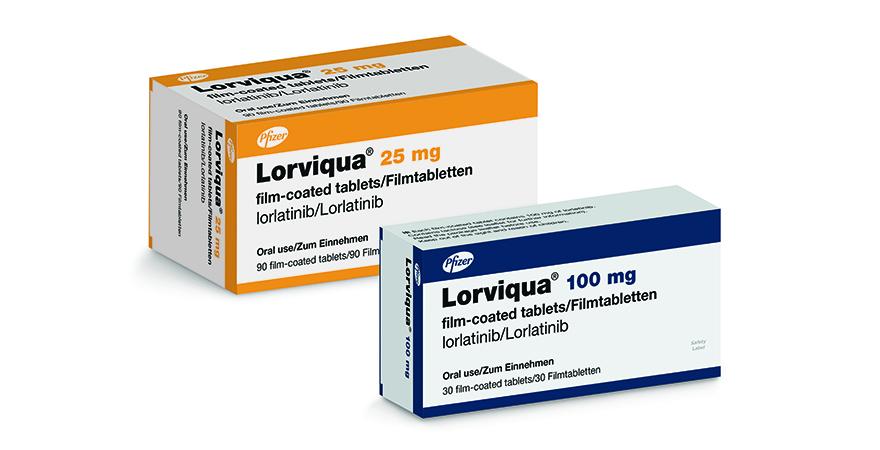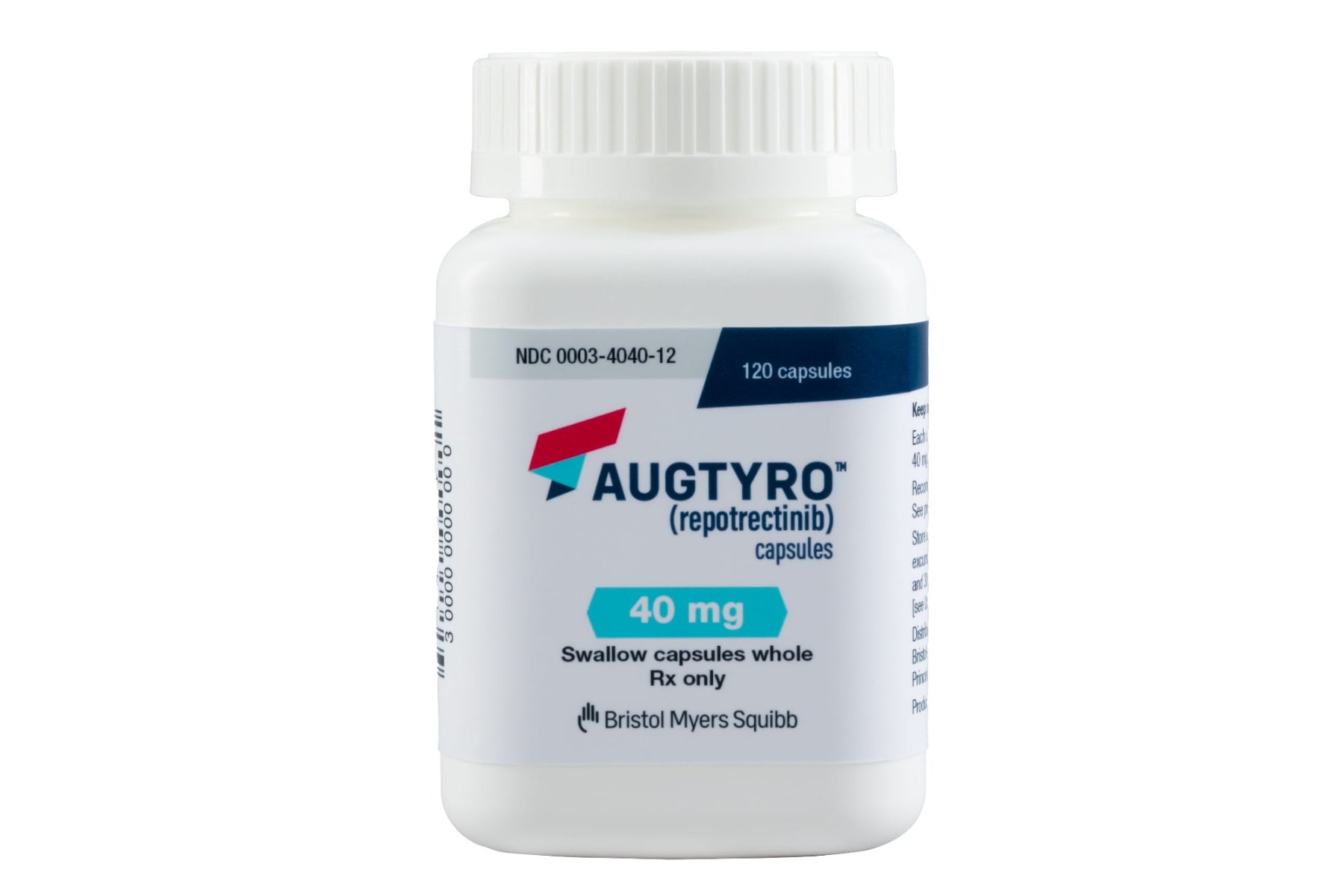Lorviqua (lorlatinib) vs Augtyro (repotrectinib)
Lorviqua (lorlatinib) vs Augtyro (repotrectinib)
Lorviqua (lorlatinib) and Augtyro (repotrectinib) are both targeted therapies designed to treat certain types of non-small cell lung cancer (NSCLC) that have specific genetic alterations. Lorviqua is specifically indicated for patients with anaplastic lymphoma kinase (ALK)-positive metastatic NSCLC who have progressed on prior ALK inhibitors, focusing on a single genetic driver of cancer. In contrast, Augtyro (repotrectinib) targets both ROS1 and TRK fusions in addition to ALK, potentially offering a broader range of action for patients with these genetic markers, but as of the last knowledge update, it may still be under clinical investigation and not yet approved for use. Patients should consult with their oncologist to determine which medication is appropriate for their specific genetic mutation and treatment history, as well as to discuss the potential benefits and risks of each therapy.
Difference between Lorviqua and Augtyro
| Metric | Lorviqua (lorlatinib) | Augtyro (repotrectinib) |
|---|---|---|
| Generic name | lorlatinib | repotrectinib |
| Indications | Treatment of patients with anaplastic lymphoma kinase (ALK)-positive metastatic non-small cell lung cancer (NSCLC) | Treatment of adult and pediatric patients 12 years of age and older with advanced or metastatic solid tumors with a neurotrophic tyrosine receptor kinase (NTRK) gene fusion |
| Mechanism of action | ALK and ROS1 inhibitor | TRK, ROS1, and ALK inhibitor |
| Brand names | Lorviqua | Augtyro |
| Administrative route | Oral | Oral |
| Side effects | Edema, peripheral neuropathy, cognitive effects, dyspnea, weight gain | Fatigue, constipation, cough, diarrhea, dizziness |
| Contraindications | Hypersensitivity to lorlatinib or any of its excipients | Hypersensitivity to repotrectinib or any of its excipients |
| Drug class | Tyrosine kinase inhibitor | Tyrosine kinase inhibitor |
| Manufacturer | Pfizer | Turning Point Therapeutics, Inc. |
Efficacy
Lorviqua (lorlatinib) Efficacy in Lung Cancer
Lorviqua, known generically as lorlatinib, is a medication specifically approved for the treatment of patients with anaplastic lymphoma kinase (ALK)-positive metastatic non-small cell lung cancer (NSCLC) who have progressed on prior ALK inhibitors. As a third-generation ALK inhibitor, lorlatinib has demonstrated significant efficacy in overcoming resistance to first and second-generation ALK inhibitors. Clinical trials have shown that lorlatinib is effective in inducing a response in a substantial proportion of patients, with response rates varying depending on the line of therapy and the presence of central nervous system (CNS) metastases. Lorlatinib has also shown a notable ability to penetrate the blood-brain barrier, providing therapeutic effects in patients with CNS involvement, a common complication in advanced NSCLC.
Augtyro (repotrectinib) Efficacy in Lung Cancer
Augtyro, with the generic name repotrectinib, is an investigational, next-generation tyrosine kinase inhibitor targeting the tropomyosin receptor kinases (TRK), ROS1, and ALK. It is designed to treat patients with cancers that harbor these specific genetic alterations, including NSCLC. While repotrectinib is still under clinical investigation, preliminary data from early-phase clinical trials have shown promise in patients with NSCLC harboring ROS1 or NTRK fusions, particularly those who have developed resistance to prior therapies. The efficacy of repotrectinib in NSCLC is being evaluated in terms of its ability to achieve objective response rates and to provide durable responses, with a focus on both systemic disease and CNS metastases.
It is important to note that the efficacy of both Lorviqua and Augtyro can be influenced by the specific genetic alterations present in a patient's tumor, prior treatments received, and the presence of resistance mutations. As such, molecular testing to identify actionable mutations is an essential step in determining the suitability of these targeted therapies for individual patients with lung cancer. Additionally, the safety profile of each medication must be considered alongside efficacy data to provide a comprehensive assessment of their therapeutic potential in the management of lung cancer.
As research continues, the efficacy of Lorviqua and Augtyro in lung cancer will be further elucidated through ongoing clinical trials and real-world studies. These findings will help to refine treatment strategies and potentially expand the indications for these targeted therapies, improving outcomes for patients with this challenging disease. It is essential for healthcare providers to stay informed about the latest developments in the treatment landscape of lung cancer to optimize patient care.
Regulatory Agency Approvals
Lorviqua
-
European Medical Agency (EMA), European Union

-
Food and Drug Administration (FDA), USA

-
Health Canada

-
Therapeutic Goods Administration (TGA), Australia

Augtyro
-
Food and Drug Administration (FDA), USA

Access Lorviqua or Augtyro today
If Lorviqua or Augtyro are not approved or available in your country (e.g. due to supply issues), you can access them via Everyone.org.
How it works

Make an enquiry
Choose the medicine you want to buy, answer a couple of questions, and upload your prescription to speed things up. We’ll get back to you within 24 hours.


Make an enquiry
Choose the medicine you want to buy, answer a couple of questions, and upload your prescription to speed things up. We’ll get back to you within 24 hours.


Breeze through the paperwork
We'll guide you through the required documents for importing unapproved medicine, ensuring you have all the necessary information.


Get a personalized quote
We’ll prepare a quote for you, including medicine costs and any shipping, administrative, or import fees that may apply.


Receive your medicine
Accept the quote and we’ll handle the rest - sourcing and safely delivering your medicine.

Some text on this page has been automatically generated. Speak to your physician before you start a new treatment or medication.
Let's talk
If you have any questions, call us or send us a message through WhatsApp or email:
Contact us




